May 30 2025
White House seeks new tariff legal route; Universities face financial hit; Alcohol industry disputes warnings; Judge weighs Google's fate; Russia plans summer offensive
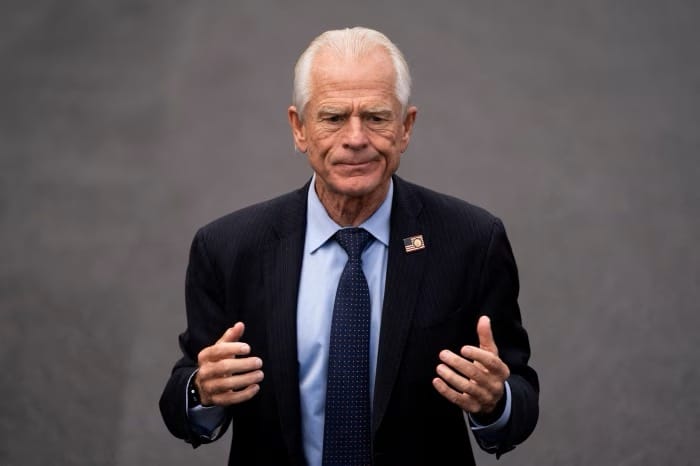
Court Ruling Forces White House to Seek New Legal Path for Tariffs
U.S. Universities Face Financial Hit as Trump Admin Targets Chinese Student, Critic of Policy Say It Will Hurt US Competitiveness
Alcohol Industry Disputes Health Warnings, Promotes Social Benefits of Drinking
As Judge Weighs Google's Fate, AI Emerges as a Disruptor
Russia Expected to Launch Summer Offensive as Peace Talks Falter
Sponsored by
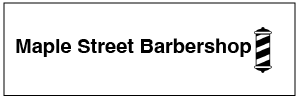
1. Court Ruling Forces White House to Seek New Legal Path for Tariffs
WASHINGTON—President Trump’s trade team is readying its Plan B. The administration’s tariff strategy was undermined when a court this week found it was illegal for Trump to impose sweeping duties by using emergency economic powers. A federal appeals court on Thursday allowed his duties to stay in effect while the administration’s appeal moves forward, but U.S. officials are weighing their options should they need to find a new legal authority to impose the president’s steep tariffs, which he argues will help rebalance trade in America’s favor. The potential pivot reflects the challenges to Trump’s aggressive trade policy, which relied on a novel interpretation of trade law. Typically, tariffs are imposed using targeted authority delegated to the president by Congress, but Trump’s team relied on little-used emergency powers to impose the bulk of his wide-ranging second-term tariffs quickly. With that strategy under threat, the president’s team is weighing a twofold response, according to people familiar with the matter. First, the administration is considering a stopgap effort to impose tariffs on swaths of the global economy under a never-before-used provision of the Trade Act of 1974, which includes language allowing for tariffs of up to 15% for 150 days to address trade imbalances with other countries, the people said. That would then buy time for Trump to devise individualized tariffs for each major trading partner under a different provision of the same law, used to counter unfair foreign trade practices. That second step requires a lengthy notification and comment process, but is seen by administration officials as more legally defensible than the tariff policy that was found to be illegal this week. The alternative provision has been used many times in the past, including for Trump’s first-term tariffs on China.
WSJ
2. U.S. Universities Face Financial Hit as Trump Admin Targets Chinese Student, Critic of Policy Say It Will Hurt US Competitiveness
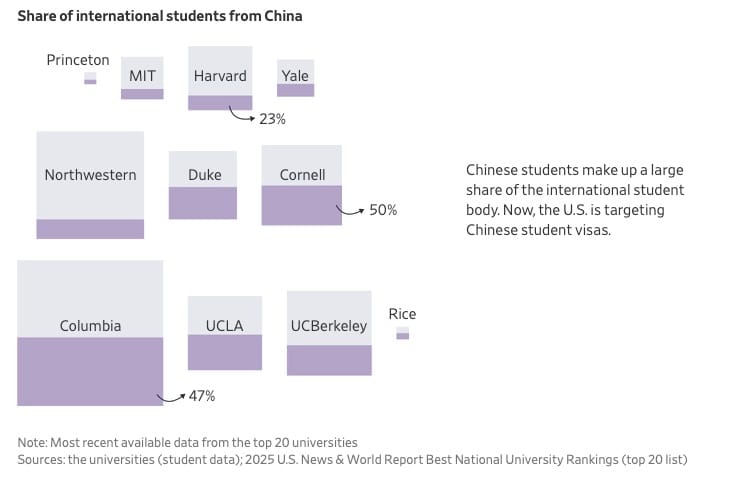
A Trump administration announcement Wednesday that it would “aggressively” begin revoking visas for Chinese students confronts universities across the U.S. with the prospect of a hit to their finances and talent pool. The move comes on top of a push to bar Harvard University from enrolling international students as part of the president’s battle with the school. The Trump administration has also paused new student-visa interviews while it prepares new measures to vet applicants’ social-media accounts, according to a State Department cable. American universities significantly increased their enrollment of Chinese students in the years following the 2008-09 financial crisis, when many suffered budget shortfalls. Typically, Chinese undergraduates pay full tuition, a critical source of revenue for universities. One in every four international students comes from China, and Chinese students form a particularly large share of the student body at top U.S. schools.
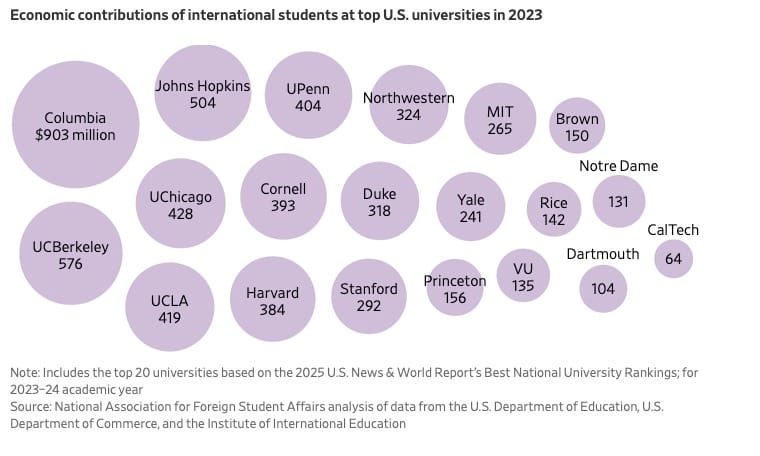
After they graduate, many assume key roles in U.S. science and engineering endeavors. A big decline in Chinese enrollment could severely cut into schools’ bottom line and damage U.S. competitiveness, say U.S. experts. Scrutiny of students from China has intensified in the months since President Trump returned to the White House. In the past few months, Republican lawmakers have called for a halt to student visas for Chinese nationals as well as stripping them of access to national labs over national-security concerns. Secretary of State Marco Rubio said Wednesday the U.S. will revoke visas of students, including those with connections to the Chinese Communist Party or studying in critical fields. Studies have shown that suspending visas for foreigners undermines U.S. innovation. In the 1920s, Congress introduced a country-specific quota system that cut immigration to the U.S. by more than 80%. As a result, fewer foreign scientists came to the U.S., which led to a sharp decline in inventions, according to research by New York University professors published in 2020. The damage persisted into the 1960s, their paper said.
WSJ
3. Alcohol Industry Disputes Health Warnings, Promotes Social Benefits of Drinking
Beer, wine and spirits groups are devising new tactics to counter a hardening public health stance against alcohol, including promoting the social benefits of drinking and disputing research on the risks of moderate consumption. The World Health Organization’s position that there is “no safe level” of drinking, coupled with declining global alcohol consumption, had prompted the need for more decisive action, executives at some of the world’s largest drinks groups told the Financial Times. They are mounting a fightback that includes publicly disputing the WHO’s stance and warning that inaccurate research is influencing alcohol policymaking, as well as putting out advertising campaigns focused on the benefits of in-person socialising.
FT
4. As Judge Weighs Google's Fate, AI Emerges as a Disruptor
U.S. District Judge Amit Mehta holds in his hands the fate of Google’s massive search-engine business, which last year he ruled was an illegal monopoly. But OpenAI and other competitors might be fracturing that business faster than any judge could. A key focal point of the trial dealt with how new AI players appear to have already begun to whittle away at the search engine, the primary portal to online knowledge and discovery for decades. Mehta on Friday will hear closing arguments from lawyers at the Justice Department and Google over how to improve competition in online searches, though his ruling is also expected to play an outsize role in the future of AI. The Justice Department, which brought the case against Google in 2020, has proposed forcing the sale of its Chrome browser, preventing Google from being able to pay Apple to be its default search engine and requiring it to share data with competitors. The department says the uncommonly harsh remedies are supported by a legal standard created when the U.S. government tried to break up Microsoft over 20 years ago.
Editors note: don’t count Google out as disrupted by AI. They are aggressively deploying AI in search (“AI mode” - the most used AI tool in the world), they have a tremendous data advantage/existing advertiser network, and are have world-class engineering capability. Also, Google has become a verb. If all the government does is take away Chrome, it’ll be less than a slap on the wrist and would give them breathing room while all their other Big Tech competitors are embroiled in more antitrust scrutiny.
WSJ
5. Russia Expected to Launch Summer Offensive as Peace Talks Falter
KYIV — Russia is expected to mount a major offensive this summer against Ukraine’s eastern Donetsk region, which it has been trying to conquer since the beginning of the war, Ukrainian military officials and analysts said. The warnings over the offensive, which some analysts say has already begun, come as a U.S.-brokered peace process has limped along with inconclusive meetings and little concrete results. Russia has rejected repeated U.S. and European calls for an immediate ceasefire. U.S. analysts have said Russian President Vladimir Putin appears confident that he can still win the war militarily, though sanctions and heavy casualties may be slowly eroding Russia’s war machine, and this summer could be its last chance for a major push.
Washington Post
May 30, 1922: Warren G. Harding becomes the first president to be heard on the radio
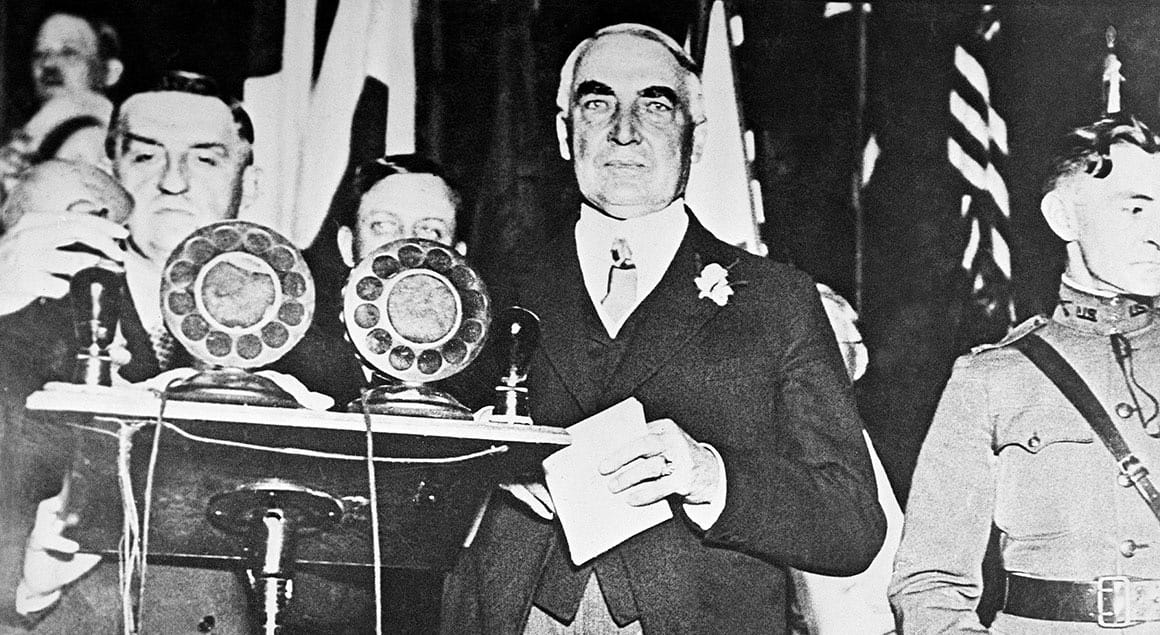
SUBSCRIBE TO GET THE CITIZEN JOURNAL IN YOUR INBOX - FREE!
subscribe/unsubscribe to city emails, subscribe to app notifications, get the app
See the Ad Astra Podcast! Released on Apple and Spotify around 10a CST.
Sponsors (click me!)





Sources
- https://www.wsj.com/economy/trade/trump-trade-tariff-strategy-pivot-bfe11596?mod=hp_lead_pos1
- https://www.wsj.com/us-news/education/targeting-chinese-students-threatens-the-bottom-line-at-american-universities-c64a89b5?mod=hp_lead_pos7
- https://www.ft.com/content/7694549e-08e5-434e-b331-03b1327304dd
- https://www.wsj.com/tech/google-search-ai-antitrust-trial-57ec6fdb?mod=hp_lead_pos6
- https://www.washingtonpost.com/world/2025/05/27/ukraine-russia-summer-offensive/
